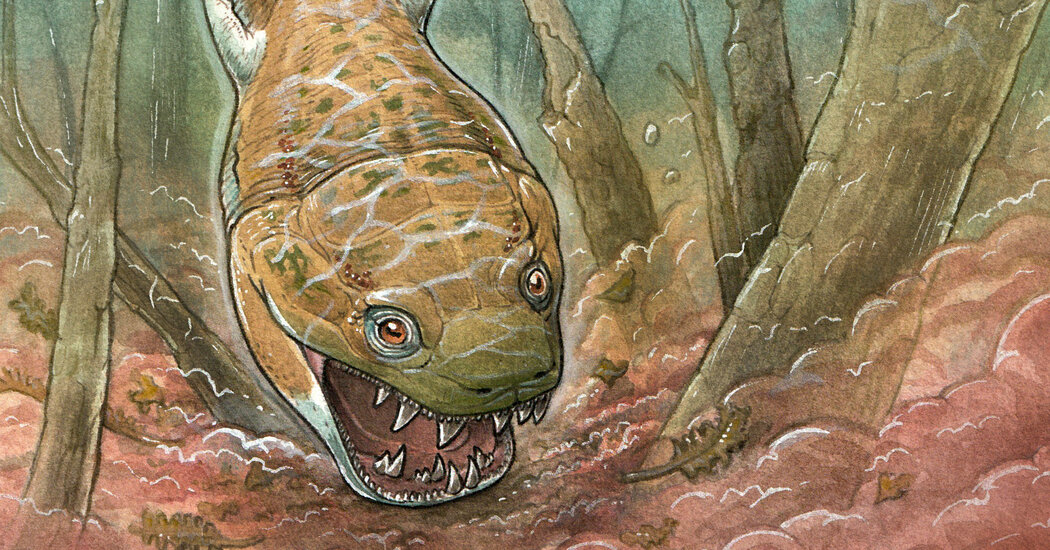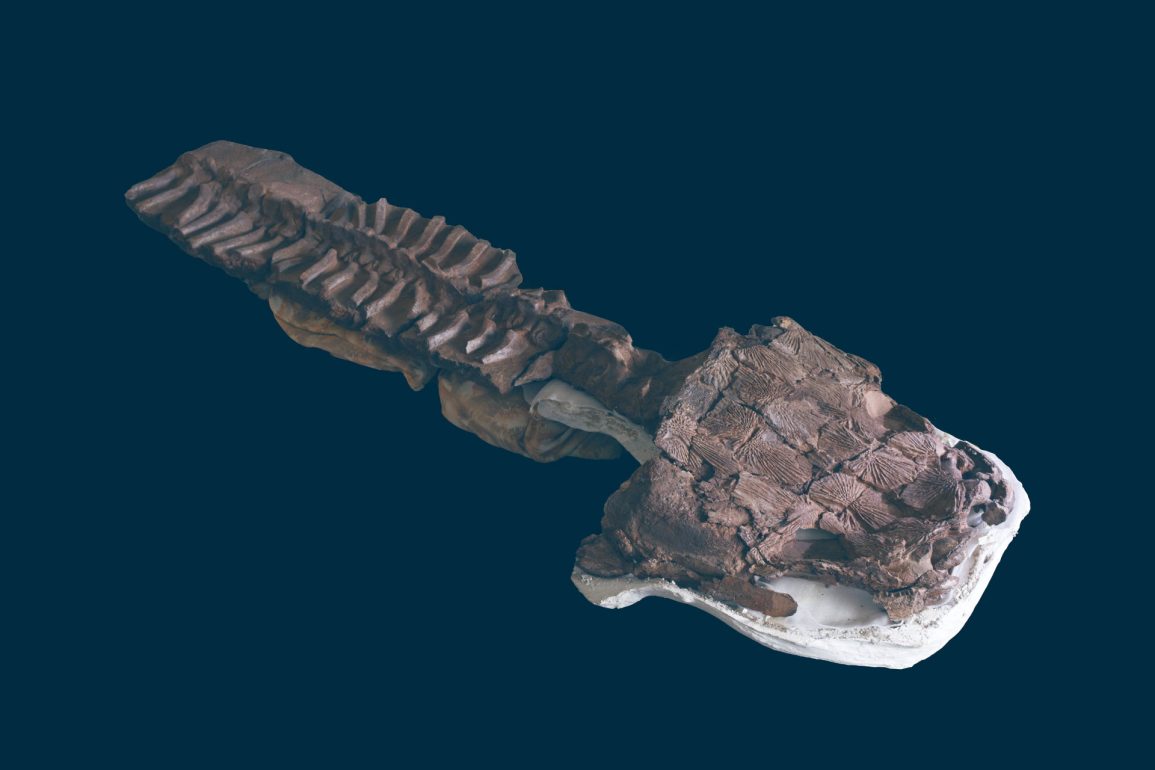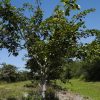In the arid deserts of Namibia, a team of international scientists made a groundbreaking discovery that is transforming our knowledge of early vertebrate evolution. After three years of meticulous research, they unearthed the fossilized remains of Gaiasia jennyae, a colossal predator from the pre-dinosaur era.
This ancient creature, with its massive “toilet seat-shaped” skull and body length of nearly 10 feet, was the apex predator of its time, dominating ancient swamps and lakes.
Gaiasia jennyae, a basal tetrapod that lived around 280 million years ago, was discovered in Namibia, part of the ancient supercontinent Gondwana. This discovery is particularly significant because it challenges the prevailing belief that early tetrapods primarily evolved and diversified in the northern hemisphere.
Until now, fossils of these early four-limbed vertebrates were mostly found in the north, suggesting a northern origin for these crucial ancestors of all modern land-dwelling vertebrates.
Professor Claudia Marsicano from the University of Buenos Aires, one of the study’s lead authors, highlighted the uniqueness of Gaiasia jennyae. Not only was it an unusually large basal tetrapod for its time, but its fossil was also found in a region with no previous records of such creatures.
The structure of its skull, featuring large interlocking fangs, immediately indicated that this was a new species, adding a new dimension to our understanding of early vertebrate evolution.

The discovery location in Namibia’s Ugab River valley reveals much about the environment in which Gaiasia Jennyae lived. Around 280 million years ago, this area was part of a swampy, cold world near the 60th parallel, far different from today’s arid landscape. During that period, the Earth was emerging from an ice age, with swampy conditions prevailing in polar regions, creating a suitable habitat for this giant predator.
Dr. Jason Pardo, co-lead author of the study, described Gaiasia jennyae as a “living fossil.” Despite living long after its related species were thought to have gone extinct, Gaiasia retained features of much older tetrapods, indicating its evolutionary significance.
This discovery not only provides insight into the distribution and evolution of early land-dwelling creatures but also suggests that these organisms were more widely distributed than previously thought.
The fossil was discovered and meticulously prepared by a team of researchers, including Sibusiso Mtungata from the Iziko Museum. The well-preserved skeleton was found in ancient mudstone, and its preparation took two years in the Karoo Fossil Laboratory. The process of extracting and studying the fossil was challenging due to its size and the need for careful handling to avoid damaging the intricate bones.
The discovery of Gaiasia jennyae, funded by PAST Africa and the National Geographic Society, underscores the importance of the southern continents in understanding early vertebrate evolution.
It suggests a more complex history of tetrapods in Pangea, with ancient forms persisting in colder, swampy regions while more advanced forms evolved in warmer areas. This challenges the simpler narratives previously held about early tetrapod distribution and evolution.
The fossil of Gaiasia jennyae, named in honor of Professor Jennifer Clack, a renowned expert in early tetrapod evolution, will soon be displayed at the Geological Museum of Namibia.
This discovery not only enriches our understanding of the diversity and complexity of early life on Earth but also highlights the ongoing nature of scientific discovery, reminding us that the history of life is full of surprises and complexity yet to be fully uncovered.

